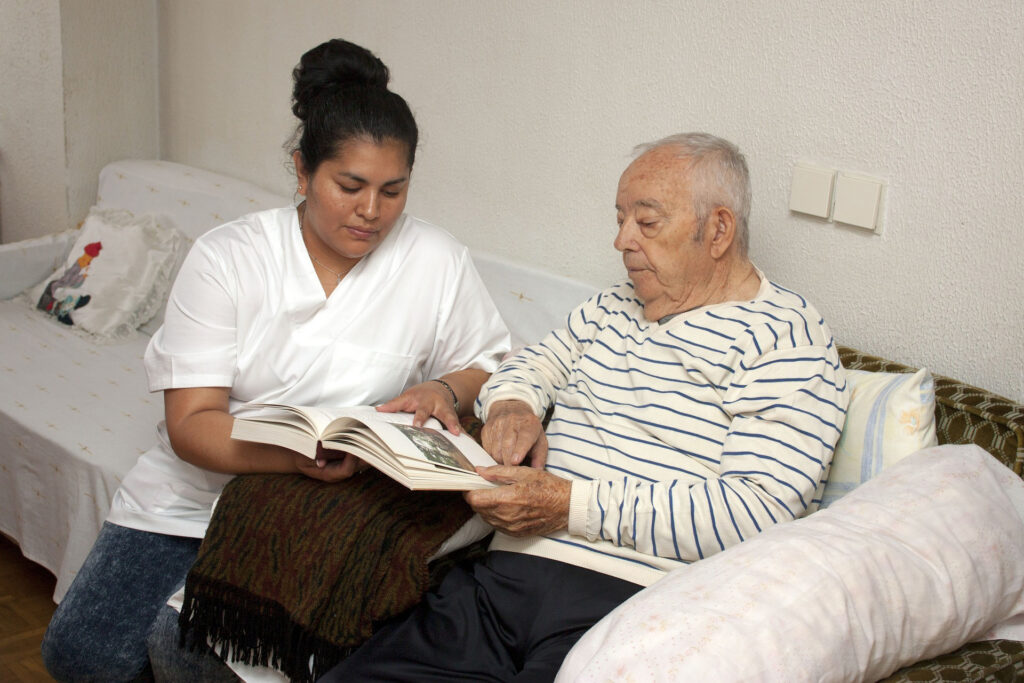UWGB seeks caregiver crisis solutions

By William Kopp
Contributing Writer
GREEN BAY – The caregiver crisis is a growing issue in northern Wisconsin.
As the population of senior citizens rises exponentially, the relative number of caregivers decreases.
Northern Wisconsin is expected to have a 72% increase in citizens 65 and older by 2040 while the growth of young workers, particularly in healthcare with assisted living, will only increase by 12%.
“Right now those 65 and older make up 15% of our [Wisconsin’s] population,” University of Wisconsin-Green Bay Program Manager for Business and Government Outreach Laura Nolan said. “By 2024, they will make up 24%.”
That’s a large increase, particularly caused by the “baby boomer” population reaching those ages, and it’s only bound to increase as time continues.
As Program Specialist for the Wisconsin Caregiver Academy Kerry Winkler explained, “Over the past several years, a number of the baby boomer generation has gotten to the age where they need additional care, whether it be in the home or an assisted living facility. And right now that number is larger than the number of caregivers that we have that are assisting them. So, the crisis comes where there’s just not enough caregivers to fill that need both at home and in a facility setting.”
In just two years, Wisconsin is looking at a 4% increase in caregiver vacancies.
“And then, I think this is a huge one. So there were 18,482 individuals who sought care and services from a long term care provider [last year],” put Winkler. “They were denied or delayed services due to lack of staff. So over 18,000 people [without care].”
Nolan added, “So even within that home situation, people are suffering because they can’t get homecare to come in because there’s not enough workers.”
Handling future crises
Trying to attack a problem before it happens isn’t always a top priority for organizations, but UW-Green Bay is all about it when it comes to this crisis.
In light of this future issue, UW-Green Bay has been given a grant of $865,000 from the Wisconsin Department of Health Services (DHS) to help address the crisis.
This grant will specifically provide resources and training for supervisors of vital workers/caregivers.
In 2019, there was a survey sent out to 60,000 participants who had assisted living training and it was found throughout 3,000 responses that the number one reason, aside from pay, for quitting or leaving the field, was management — not feeling appreciated and not appreciating how they were being treated.
“Part of our project is really upscaling the management leadership of these agencies and organizations,” said Nolan. “We will be offering a variety of credit and non-credit options for healthcare management and leadership development. Also everybody who participates is going to go through a one credit specific leadership training course — credit for credit. It will be tailored from one of our leadership courses at the university to specifically deal with the unique needs of the home and community-based services.
“We also have 30 laptops built into the grant for individuals who might not have access to the technology to be able to do the online courses … those will be able to be checked out for free. We’re really trying to help a very diverse group of people. Maybe those who are in more rural areas who don’t have the technology access or maybe those from inner cities that maybe economically can’t afford the technology. We’re trying to reduce a lot of barriers.”
Many supervisors are known to rise the ranks simply from being with an organization long enough.
Whether they start with little experience, as a CNA or not, or just get promoted since they were a good caregiver, many people put in leadership positions within assisted living and caregiver jobs receive no supervisory leadership training.
Because of that, the grant will help to strengthen the supervisory skills of these workers and hopefully bring about change in workplaces to better strengthen the number of current and future workers within the assisted living side of healthcare.
“Our registry department is currently working in a certified direct care professional program that will train 10,000 brand new direct care workers every year and they’re going to create a registry to track that training,” Nolan said.
“We offer ‘train-the-trainer’ courses as well as continuing education courses and administrator courses, all for assisted living facilities,” Winkler added. “So whether you’re caregiving staff, a trainer or administrator, we have different courses, whether it be dementia or a specific client group or tasks that’s involved in that. It’s aimed to improve the caregiver skills which ultimately provide a better experience for the resident or client.”
Why pursue such a large issue?
Many organizations seek to solve issues within their communities in order to better benefit society as a whole, and that’s exactly what UW-Green Bay is looking to do.
“It’s part of our mission, which is to really be outward-focused and help the needs of our community,” Nolan said. “As we were interacting with the businesses within the home and community-based setting, we were hearing this continual need for trained workers. So it was one of those areas where we wanted to partner with [DHS], and help strengthen our state.”
UW-Green Bay is hoping to open registration this spring and then the courses should start in the summer if all goes to plan.
“It’s about all of us working together as a community, to strengthen the resources around for individuals with disabilities and older adults in our communities,” Nolan concluded.
For those interested in registering or those with questions on the caregiver crisis as a whole you can reach Winkler at [email protected] or contact the UW-Green Bay Office of Admissions at (920)465-2111.
Pass It Forward™ editorial is sponsored by Packers Give Back and Nicolet Bank.
